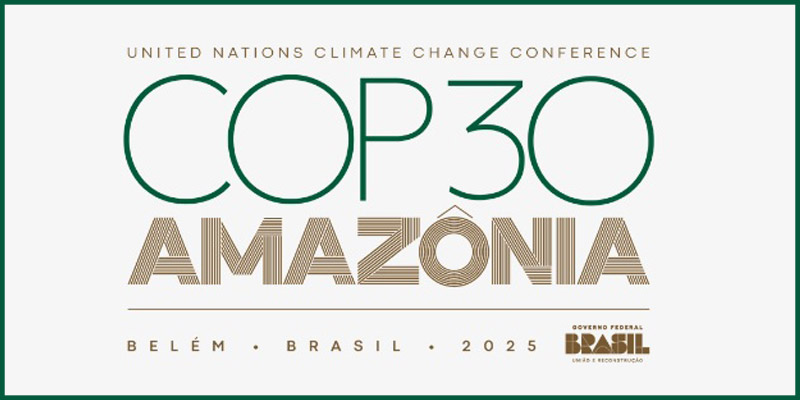- World
- Apr 11
- Sreesha V.M
Brazil to hold preliminary talks ahead of COP30 climate summit
• Brazil has scheduled the preliminary round of negotiations that help countries prepare for COP30, for October, roughly a month before the main event starts at the Amazonian city of Belem.
• The early negotiations, called the Pre-COP, will take place in Brasilia on October 14 and 15.
• The Pre-COP has gained importance this year because countries are struggling to deliver their new pledges to reduce the greenhouse gas emissions that cause global warming, known as Nationally Determined Contributions (NDCs).
• Brazil has informally proposed setting up a Climate Change Council under the UN Framework Convention on Climate Change (UNFCCC) to improve how the world responds to climate change. The idea is to speed up decision-making, coordinate efforts and improve implementation as many feel the current UN climate process is too slow and complicated.
• Brazil will host and preside over the 30th session of the Conference of the Parties (COP30) to the United Nations Framework Convention on Climate Change (UNFCCC) in November 2025 against the backdrop of several landmarks.
• COP30 will mark 20 years since the entry into force of the Kyoto Protocol and 10 years of adoption of the Paris Agreement.
What is COP?
• The United Nations Framework Convention on Climate Change (UNFCCC) is a multilateral treaty adopted in 1992, shortly after the first assessment report by the Intergovernmental Panel on Climate Change (IPCC) in 1990, to stabilise greenhouse gas concentrations at a level that would prevent dangerous anthropogenic (human-induced) interference with the climate system.
• Since entering into force in 1994, the UNFCCC has provided the basis for international climate negotiations, including landmark agreements such as the Kyoto Protocol (1997) and the Paris Agreement (2015).
• The Conference of the Parties (COP) is the main decision-making body of the UNFCCC.
• It brings together 198 countries and the European Union.
• The inaugural COP gathering took place in Berlin, Germany, in March 1995, and today the COP secretariat is headquartered in Bonn.
• COPs serve as the formal meeting place each year for the Parties to negotiate and agree on how to tackle climate change, reduce emissions and limit global warming. A primary task at COPs is the examination of national reports and emission inventories submitted by participating countries.
• These reports offer essential insights into each country’s actions and their progress toward achieving the overarching goals of the Convention.
• COPs are meant to be inclusive affairs and, as well as world leaders and government representatives, a diverse range of people from all aspects of society, from business leaders and climate scientists to Indigenous Peoples and youth, are involved, taking part in order to share insights and best practices to strengthen climate action that benefits all.
• COPs are hosted annually in different countries. COP29 was held in Azerbaijan’s capital Baku.
• The COP presidency rotates among the five recognised UN regions — Africa, Asia, Latin America and the Caribbean, Central and Eastern Europe and Western Europe and others. This rotation ensures that different corners of the world have the opportunity to host and showcase their commitment to addressing climate challenges.
(The author is a trainer for Civil Services aspirants.)

